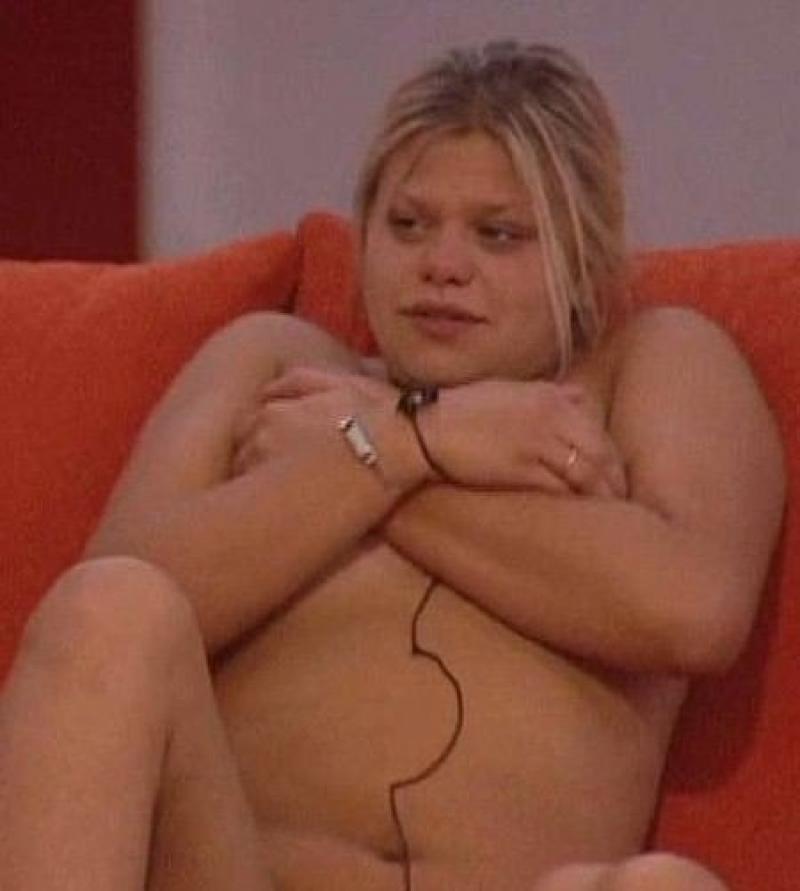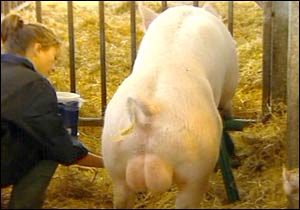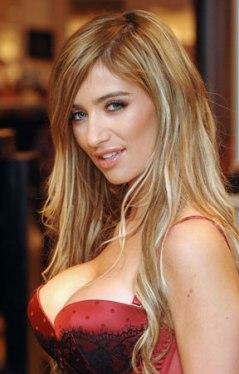Television 2000-9: Reality TV | reviews, news & interviews
Television 2000-9: Reality TV
Television 2000-9: Reality TV
Social vivisection ruled as everyone ran to live the dream on TV

It’s possible Endemol didn’t give the book too close a reading. George Orwell conceived Big Brother as an all-seeing eye whose function was to enforce social and political conformity. Let us not revisit here the gallery of desperadoes, sextroverts and day-release wannabes who formed a disorderly queue to parade themselves for days, weeks, months and indeed years on end in the Big Brother house. They did conform in a sense: every single one of them wanted to stand out from the crowd.
This year it was announced that the show which took its name from Nineteen Eighty-Four will end its siege after 11 seasons that, depending on your point of view, were either riveting or horse-tranquilisingly dull. The Trojan War was done and dusted more quickly. The Beatles were in and out in much less time. A television phenomenon that began in Holland came to our screens at the start of the decade. Give or take the odd bit of scheming and a spot of sexual jealousy, Big Brother’s first outing was a model of civility. The Dr Frankensteins of Endemol worked out that ordinary people behaving ordinarily for weeks on end was a formula that could do with a little tweaking. If Nasty Nick went back into the house nowadays he’d be eaten alive.
 Big Brother wasn’t the only example of social vivisection posing as reality. All those entertainments where they marooned people on tropical islands or locked them in pop-factory digs were every bit as synthetic and manipulative. But because it stuck around for longer than all the other formats – though no doubt King Cowell’s portfolio of star-making franchises will outlive it – Big Brother is the one that will come to define the televisual decade.
Big Brother wasn’t the only example of social vivisection posing as reality. All those entertainments where they marooned people on tropical islands or locked them in pop-factory digs were every bit as synthetic and manipulative. But because it stuck around for longer than all the other formats – though no doubt King Cowell’s portfolio of star-making franchises will outlive it – Big Brother is the one that will come to define the televisual decade.
How on earth did such a botched and hideous malformity come into being? If you take the macro-historical overview, the seeds were sown when television was deregulated, a zillion new channels sprouted, advertising and audiences fragmented and suddenly there wasn't enough money for what television had thus far always tried to do: pay the talent to make programmes. In the old days, the public wandered on screen only when invited to participate in game shows. But around 10 years ago, there was a sudden need for a new source of cheap labour to fill the hours. Reality was born. As a wise man once said, “If you pay peanuts, you get monkeys.”
It rapidly became a bottlenecked route for anyone and everyone seeking to launch a new career. That was other side effect of deregulation. Television required a lot more personalities to fill the multiplied airtime. It couldn’t all be done by Ulrika. Big Brother was like a wartime factory working round the clock to produce more Spitfires.
And then of course someone had the brilliant idea of sending celebrities in where the regular punters had already trodden. It was a calculation of rare cynicism. They knew that if desperate people would endure any humiliation to achieve celebrity, desperate celebrities would endure equivalent tortures to keep hold of it.
 Thus they were dispatched through the doors of the Big Brother house. Jack Dee, who was only doing it for charity, survived the ordeal with his dignity intact. No one else did, that year or in later ones - even Shilpa Shetty profited instantly from the treatment meted out to her by the late Jade Goody. And soon they were devising fresh frontiers for washed-up celebs to visit: the ice rink, the dancefloor, the sports field, the jungle. Literally anyone who’d ever had half a headline was on the guest list. The chick singing from that band that had that hit with whatsit. The comic who used to host that show thingumijig. The bloke who once had a ding dong with whatsherface – you know, her off the Royal Family who married the heir to the throne.
Thus they were dispatched through the doors of the Big Brother house. Jack Dee, who was only doing it for charity, survived the ordeal with his dignity intact. No one else did, that year or in later ones - even Shilpa Shetty profited instantly from the treatment meted out to her by the late Jade Goody. And soon they were devising fresh frontiers for washed-up celebs to visit: the ice rink, the dancefloor, the sports field, the jungle. Literally anyone who’d ever had half a headline was on the guest list. The chick singing from that band that had that hit with whatsit. The comic who used to host that show thingumijig. The bloke who once had a ding dong with whatsherface – you know, her off the Royal Family who married the heir to the throne.
The baying mob rooted for some, threw rotten tomatoes at others. Cricketers proved to be surprisingly good at the rumba. Newsreaders could skate. And in The Farm, a diplomat’s daughter who made a handsome sum from exciting the parts only Mrs Beckham is supposed to reach was filmed doing a similar manoeuvre on a male pig (pictured above). Nice.
 Rebecca Loos was very nearly but not quite the ultimate outcome of this national obsession. Granted, she was a walking void and a moral nullity and so of course said yes every time there was an invitation to appear on a reality show. But the final logical result of this eagerness for fame came when someone called Chantelle Houghton walked into Celebrity Big Brother, pretending to be from a girl group. That none of her housemates had heard of her did not invalidate her story. She probably hadn't heard of half of them, or they of one another. A nonentity when she went in, she was still one when she emerged victorious. “I’m living the dream,” she chirruped. This was a chilling demonstration of reality television’s ability to manufacture fame in laboratory conditions. A peroxided tabula rasa who used her winnings to augment herself in the only way she knew how (pictured), Chantelle was a kind of photographic negative of what a star used to be. To all intents and purposes, she was Dolly the Celeb.
Rebecca Loos was very nearly but not quite the ultimate outcome of this national obsession. Granted, she was a walking void and a moral nullity and so of course said yes every time there was an invitation to appear on a reality show. But the final logical result of this eagerness for fame came when someone called Chantelle Houghton walked into Celebrity Big Brother, pretending to be from a girl group. That none of her housemates had heard of her did not invalidate her story. She probably hadn't heard of half of them, or they of one another. A nonentity when she went in, she was still one when she emerged victorious. “I’m living the dream,” she chirruped. This was a chilling demonstration of reality television’s ability to manufacture fame in laboratory conditions. A peroxided tabula rasa who used her winnings to augment herself in the only way she knew how (pictured), Chantelle was a kind of photographic negative of what a star used to be. To all intents and purposes, she was Dolly the Celeb.
 If it’s true that you get the television you deserve, the decade has taught us that modern audiences wanted a Victorian freak show with digital add-ons. It happily paid for the privilege by voting, even when it was discovered that these things can be rigged. Given the chance to anoint its winners, the viewing community did have some fun block-voting for the manifestly talentless. They were used to it, after all: that’s what they did all decade with Big Brother. It’s marginally worrying, though, the future of democracy is in the hands of an electorate that votes in much larger numbers for a political correspondent who can’t tango than the politicians he used to report on.
If it’s true that you get the television you deserve, the decade has taught us that modern audiences wanted a Victorian freak show with digital add-ons. It happily paid for the privilege by voting, even when it was discovered that these things can be rigged. Given the chance to anoint its winners, the viewing community did have some fun block-voting for the manifestly talentless. They were used to it, after all: that’s what they did all decade with Big Brother. It’s marginally worrying, though, the future of democracy is in the hands of an electorate that votes in much larger numbers for a political correspondent who can’t tango than the politicians he used to report on.
Some celebrities went so far as to create their own Big Brother House. The Osbornes let the cameras in on a home where the dogs soiling the carpets were much the most house-trained inhabitants. The Andres, having met and married on television, bred and divorced on it too. Goody went the whole hog just about died on it. The Truman Show came true.
You’d like to think that in years to come people will look back at this decade and forgive us our trespasses. In fairness, outside the front door things did turn dark. In the past 10 years, the world has grown hotter, poorer and more dangerous. The thing we call reality became an opiate. It wasn't remotely real, but people had to believe in something.
The future of Arts Journalism
You can stop theartsdesk.com closing!
We urgently need financing to survive. Our fundraising drive has thus far raised £49,000 but we need to reach £100,000 or we will be forced to close. Please contribute here: https://gofund.me/c3f6033d
And if you can forward this information to anyone who might assist, we’d be grateful.

Subscribe to theartsdesk.com
Thank you for continuing to read our work on theartsdesk.com. For unlimited access to every article in its entirety, including our archive of more than 15,000 pieces, we're asking for £5 per month or £40 per year. We feel it's a very good deal, and hope you do too.
To take a subscription now simply click here.
And if you're looking for that extra gift for a friend or family member, why not treat them to a theartsdesk.com gift subscription?
more TV
 Down Cemetery Road, Apple TV review - wit, grit and a twisty plot, plus Emma Thompson on top form
Mick Herron's female private investigator gets a stellar adaptation
Down Cemetery Road, Apple TV review - wit, grit and a twisty plot, plus Emma Thompson on top form
Mick Herron's female private investigator gets a stellar adaptation
 theartsdesk Q&A: director Stefano Sollima on the relevance of true crime story 'The Monster of Florence'
The director of hit TV series 'Gomorrah' examines another dark dimension of Italian culture
theartsdesk Q&A: director Stefano Sollima on the relevance of true crime story 'The Monster of Florence'
The director of hit TV series 'Gomorrah' examines another dark dimension of Italian culture
 The Monster of Florence, Netflix review - dramatisation of notorious Italian serial killer mystery
Director Stefano Sollima's four-parter makes gruelling viewing
The Monster of Florence, Netflix review - dramatisation of notorious Italian serial killer mystery
Director Stefano Sollima's four-parter makes gruelling viewing
 The Diplomat, Season 3, Netflix review - Ambassador Kate Wyler becomes America's Second Lady
Soapy transatlantic political drama keeps the Special Relationship alive
The Diplomat, Season 3, Netflix review - Ambassador Kate Wyler becomes America's Second Lady
Soapy transatlantic political drama keeps the Special Relationship alive
 The Perfect Neighbor, Netflix review - Florida found-footage documentary is a harrowing watch
Sundance winner chronicles a death that should have been prevented
The Perfect Neighbor, Netflix review - Florida found-footage documentary is a harrowing watch
Sundance winner chronicles a death that should have been prevented
 Murder Before Evensong, Acorn TV review - death comes to the picturesque village of Champton
The Rev Richard Coles's sleuthing cleric hits the screen
Murder Before Evensong, Acorn TV review - death comes to the picturesque village of Champton
The Rev Richard Coles's sleuthing cleric hits the screen
 Black Rabbit, Netflix review - grime and punishment in New York City
Jude Law and Jason Bateman tread the thin line between love and hate
Black Rabbit, Netflix review - grime and punishment in New York City
Jude Law and Jason Bateman tread the thin line between love and hate
 The Hack, ITV review - plodding anatomy of twin UK scandals
Jack Thorne's skill can't disguise the bagginess of his double-headed material
The Hack, ITV review - plodding anatomy of twin UK scandals
Jack Thorne's skill can't disguise the bagginess of his double-headed material
 Slow Horses, Series 5, Apple TV+ review - terror, trauma and impeccable comic timing
Jackson Lamb's band of MI5 misfits continues to fascinate and amuse
Slow Horses, Series 5, Apple TV+ review - terror, trauma and impeccable comic timing
Jackson Lamb's band of MI5 misfits continues to fascinate and amuse
 Coldwater, ITV1 review - horror and black comedy in the Highlands
Superb cast lights up David Ireland's cunning thriller
Coldwater, ITV1 review - horror and black comedy in the Highlands
Superb cast lights up David Ireland's cunning thriller
 Blu-ray: The Sweeney - Series One
Influential and entertaining 1970s police drama, handsomely restored
Blu-ray: The Sweeney - Series One
Influential and entertaining 1970s police drama, handsomely restored
 I Fought the Law, ITVX review - how an 800-year-old law was challenged and changed
Sheridan Smith's raw performance dominates ITV's new docudrama about injustice
I Fought the Law, ITVX review - how an 800-year-old law was challenged and changed
Sheridan Smith's raw performance dominates ITV's new docudrama about injustice

Add comment